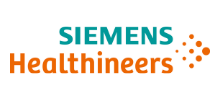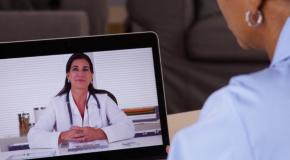Patient monitoring apps allow patients with chronic diseases to report on their condition from outside of the hospital – where they spend most of their time – putting the patient, rather than the hospital, at the centre of the care pathway.
A high society-wide level of smartphone penetration has presented a large market for developers, with apps now used in clinical practice for chronic disease management in diabetes, chronic kidney disease, congestive heart failure and oncology. However, up until the covid-19 pandemic struck, the development of technological capabilities within healthcare had largely outpaced the capacity to implement many novel remote patient monitoring apps as part of real-world practice.
The covid-19 pandemic initiated a rapid reorganisation of healthcare delivery systems, raising awareness of these digital tools that physicians can use to provide care outside hospitals. Chronic disease monitoring apps vary widely in their functionality but increasingly rely on patients to capture health data that can help inform clinical decision-making. This has enabled a high degree of patient-centricity, varying from enabling behavioural nudges from clinicians to providing real-time updates to care teams with on-demand care capabilities for patients.
In this case study we explore the use of remote monitoring, particularly in oncology. We review recent health system developments, challenges to implementation of these digital tools and the emerging opportunities for their sustainable use throughout health systems.
Beyond remote appointments, recent digital health advances in oncology have centred on capturing validated patientreported outcomes (PROs) in the home environment. PROs capture patient-reported health data on symptoms, response to treatment and its effect on daily living, in the process providing physicians in clinic with a retrospective view of these metrics over the preceding week or month, thus supporting clinical decision-making. According to Trevor Royce, assistant professor and oncologist at the Lineberger Comprehensive Cancer Centre at the University of North Carolina (UNC) at Chapel Hill, PROs “are now a well-established subspecialty in cancer treatment, and there is real momentum behind a move to more sophisticated monitoring” of these metrics, including with mobile apps.
“PROs are fast becoming the standard of care and evidence of their use may in fact improve survival in some patients,” says Dr. Royce, citing research demonstrating increased “time-on-therapy” and overall one-year survival for cancer patients treated at UNC-Chapel Hill and Memorial Sloan Kettering Cancer Centre in New York City. The evidence also provides an economic argument backing the use of PROs, in the form of an 8% reduction in emergency room visits and a 14% reduction in hospitalisations for cancer patients.
Mobile apps can provide a more valuable, real-time dataset by enabling a much faster feedback loop between patients and their care teams. Increased reactivity allows for deeply personalised cancer care plans that respond to patient behaviours, in addition to better management of adverse events related to treatment, a reduction in healthcare costs arising from preventable hospital admissions and ultimately improved patient quality of life. These apps provide an avenue for patients to become participants in co-creating their care pathway and open the door for shared decision-making, which may have other behavioural benefits in terms of adherence.
Benefits
- Patient monitoring apps can provide real-time data on cancer patients, thereby enabling much faster feedback loops between individuals and their healthcare teams.
- Clinicians can develop personalised cancer care plans that respond to patient behaviours and support better management of adverse events related to treatment.
- Cancer apps could support a reduction in healthcare costs arising from preventable hospital admissions.
- They can help to improve a patient’s quality of life by allowing them to become participants in co-creating their care and opening the door for shared decision-making.
Challenges
- Reimbursement pathways for mobile health tools have traditionally been a barrier to implementation, but leveraging beyond the pandemic could accelerate adoption into clinical pathways.
- Healthcare providers need to invest in ICT infrastructure that can rapidly translate data from apps into actionable and meaningful insights for clinicians – without becoming an additional administrative burden.
- Providers will need to invest in different skills for digital workflows, or new roles will be required within healthcare settings, to support the digital patient journey.
- Confidence in these tools could be achieved with the use of digital formularies.
- Healthcare providers and developers will need to continue to work together to prioritise the standardisation of apps so that they are interoperable across health systems. As regulations differ across geographies, this will require taking into account factors including different IT architecture, connectivity requirements, and data sharing and communication standards.








